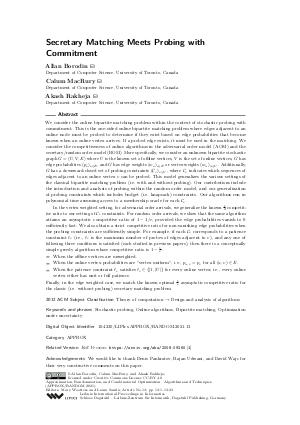LIPIcs.APPROX-RANDOM.2021.13.pdf
- Filesize: 0.82 MB
- 23 pages

 Creative Commons Attribution 4.0 International license
Creative Commons Attribution 4.0 International license
















Feedback for Dagstuhl Publishing